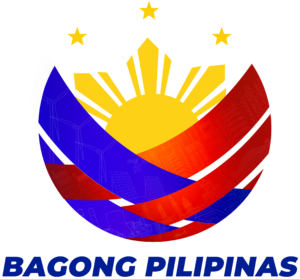THE PETITION OF MARCH 1888 by: Ma. Cielito G. Reyno The anti-war and pro-democracy demonstrations of the 1960s culminating in the unforgettable student-powered First Quarter Storm of 1970; the Parliament of the Streets spawned by the 1983 assassination of Ninoy Aquino; the formation of massive human barricades around Camp Crame leading in the 1986 EDSA continue reading : The Petition of March 1888
Betrayal of Trust – The San Juan Del Monte Bridge Incident
BETRAYAL OF TRUST – THE SAN JUAN DEL MONTE BRIDGE INCIDENT by Quennie Ann J. Palafox Without any single doubt, the Filipino-American War is one of the most unforgettable events in our history because in just one day, the fate of the nation was changed and its impacts are still felt to continue reading : Betrayal of Trust – The San Juan Del Monte Bridge Incident
What they say about RM
WHAT THEY SAY ABOUT RM by Dr. Augusto V. de Viana He set the example not only for government officials and functionaries to follow but for the nation as a whole to emulate. He impressed upon the bureaucracy that government of!ces is not for enrichment and self aggrandizement but for service to the people, especially continue reading : What they say about RM
Stories About Magsaysay
STORIES ABOUT MAGSAYSAY by Dr. Augusto V. de Viana During the Second World War, RM was a guerilla leader in Zambales and was sought after by the Japanese. One of the stories about him involved a close brush with capture by the enemy and possible torture and death. One day Magsaysay was driving a carabao cart along an continue reading : Stories About Magsaysay
Ramon Magsaysay As A Family Man
RAMON MAGSAYSAY AS A FAMILY MAN by Chris Antonette P. Pugay Every Filipino considers his family as one of the most, if not the most, valued possession in his life. Filipino families are generally closely-knitted and in most cases households accommodate extended family members. Even those who belonged to the powerful, rich and in”uential clans continue reading : Ramon Magsaysay As A Family Man
Ramon F. Magsaysay: From Anti-Communist Fighter to Warrior Against Poverty
RAMON F. MAGSAYSAY: FROM ANTI-COMMUNIST FIGHTER TO WARRIOR AGAINST POVERTY by Ma. Cielito G. Reyno Magsaysay.s role as the country.s chief architect of the !ght against the Huk-led communist insurgency that was ravaging the country at the time was the logical consequence of his being a guerilla leader in Zambales during World War II. Magsaysay continue reading : Ramon F. Magsaysay: From Anti-Communist Fighter to Warrior Against Poverty
Filipino First- Claro M. Recto, Champion of Filipino Nationalism
FILIPINO FIRST – CLARO M. RECTO, CHAMPION OF FILIPINO NATIONALISM by Quennie Ann J. Palafox “So long as our economic policies remain dependent primarily on foreign “aid” and investments, and our policy-makers remain habitual yes-men of foreign advisors, this “aid,” investment and advice, will be directed toward the retention of the economic status quo.” – continue reading : Filipino First- Claro M. Recto, Champion of Filipino Nationalism
The Controversial Philippine National Flag
THE CONTROVERSIAL PHILIPPINE NATIONAL FLAG by Chris Antonette Piedad-Pugay Before 1896, the Filipinos had no common flag. The use of flags became common in the Philippines during the height of the revolution. Different flags were created and designed by various Katipunan generals signifying the unit or battalion where they belong. However, these flags continue reading : The Controversial Philippine National Flag
THE TREATY OF PARIS: An Instrument of Peace or an Insignia of Betrayal?
THE TREATY OF PARIS: AN INSTRUMENT OF PEACE OR AN INSIGNIA OF BETRAYAL? by Chris Antonette Piedad-Pugay One of the major events that shaped the destiny of the Philippines was the Spanish- American War that broke out in 1898. Relations between the two countries severed when the Cuban Revolution drawn the United continue reading : THE TREATY OF PARIS: An Instrument of Peace or an Insignia of Betrayal?
Vibora’s Rizaline Constitution
VIBORA’S RIZALINE CONSTITUTION by Chris Antonette Piedad-Pugay Most Filipino patriots during the revolutionary period yearned to alleviate and free the Filipino people from the hands of their oppressors. In their varying means, these patriots and nationalists made contributions, both recorded and unrecorded in order to attain the aspirations of the Revolution. continue reading : Vibora’s Rizaline Constitution
Values we must learn from Andres Bonifacio
VALUES WE MUST LEARN FROM ANDRES BONIFACIO by Chris Antonette Piedad-Pugay Opening the pages of Philippine history books, Bonifacio’s name would always be mentioned and associated with the formation of the Katipunan, a separatist movement which spearheaded the Philippine Revolution of 1896. But unlike Jose Rizal, whose life and undertakings were fully documented, very continue reading : Values we must learn from Andres Bonifacio
Bonifacio’s Faith
BONIFACIO’S FAITH Myth and spirituality is deeply infused in Filipino psyche. According to the historian, Teodoro Agoncillo one of the distinct characteristics of early Filipino is being fatalistic and religious. We have a strong attachment to our creator even during the time that we are not yet converted to Christianity. There is a certain connection continue reading : Bonifacio’s Faith

